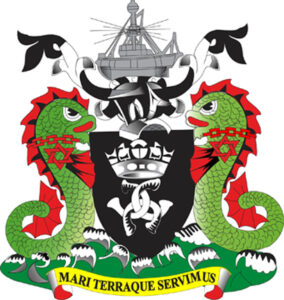Nigeria has been challenged to invest more in the training and certification of her maritime professionals in order to maximally benefit from the enormous opportunities available in the sector.

The general manager, marine of the Nigerian Port Authority, Capt Jerome Angyunwe, who said this at the Maritime Academy of Nigeria, Oron recently, explained that though the Nigerian government has begun to take steps towards increasing the number of maritime professionals in country, there is still a yawning gap between available and the needed categories of such personnel in the nation’s maritime sector.
Capt. Angyunwe spoke after presenting paper titled “Analysis of Shipping Career Development Opportunities in Nigeria and Globally” as part of the 2021 cadet graduation lecture series with the theme: Seafarers’ and Shipping Career Development Paths after School-Based Training.
He however said that the future looks brighter as the federal government has set up fleet implementation committee and that a lot is being done with regard to Cabotage law
“They have set up the fleet implementation committee, and the Cabotage law is a capital law to protect a lot of jobs our Nigerian people do. The minister has taken special interest in it. We have so many expatriate staff working especially offshore. If only the Cabotage law can be implemented clearly, then we would have been replacing those foreigners.
“I think that we need to make concerted effort to have the right man power, in quality, and in quantity. At the moment, there is a gross shortfall.
“There are many maritime accredited training centres in Nigeria. Looking at our population, our coastal line, and rich continental shelf where we are doing a lot of exploration, we should have a lot more people trained. By the time we have taken advantage of the cabotage law, and the fleet Implementation committee, we should be able to employ a lot of people, and this employment will bring about increase in the capacity training.” The NPA manager said
Boyce Edubio, assistant director, Accident Investigation Bureau, Nigerian Maritime Administration and Safety Agency (NIMASA), who also presented a paper: “Certificate Competency and Seagoing Documentations”, urged the graduating cadets to acquaint themselves with international maritime regulatory agencies as such knowledge would be useful in their hunt for international employment.
Edubio who is also an ex-cadet of the academy however said Nigeria would benefit more from the blue economy if most treaties and conventions to which it is a signatory are domesticated.
“They are lot of treaties conventions, but unfortunately Nigeria is yet to ratify all of them. You know one thing is to sign up to the treaty, and then domesticate it. I know that in the last three or four years, we’re in the process of having the national assembly to ratify them, so that we can begin to enforce them.
Read Also: QUESTION OF THE WEEK: What is Bill of Lading
“We are yet to really tap from the numerous benefits of our expansive coastline. If you watch closely, the federal government are beginning to tap into the blue economy. So it’s limitless, I don’t think we’re even up to 20% in the course of tapping from the benefits.”
He described the Maritime Academy of Nigeria , Oron, as the best in Africa in terms of infrastructure.
“I don’t think there is any maritime institution in Africa you can compare this with. I’ve been to Singapore, UK, Australia, so you can compare the resources we have here to big maritime nations.
“I think what we are lacking a little bit, which I see that the rector is beginning to focus on, is the new man resources -the maritime instructors- to really impart this knowledge, but we have them out there.” Edubio said.
The Chairman of the 2021 cadet graduation organising committee, Dr Kevin Okonna, who also stood in for the rector of the academy, Commodore Duja Effedua (retd), said the lecture was organised to benefit everyone as it covered every part the maritime business for the cadets’ life after school as well as others in the maritime sector.
Kindly like us on Facebook
















Discussion about this post